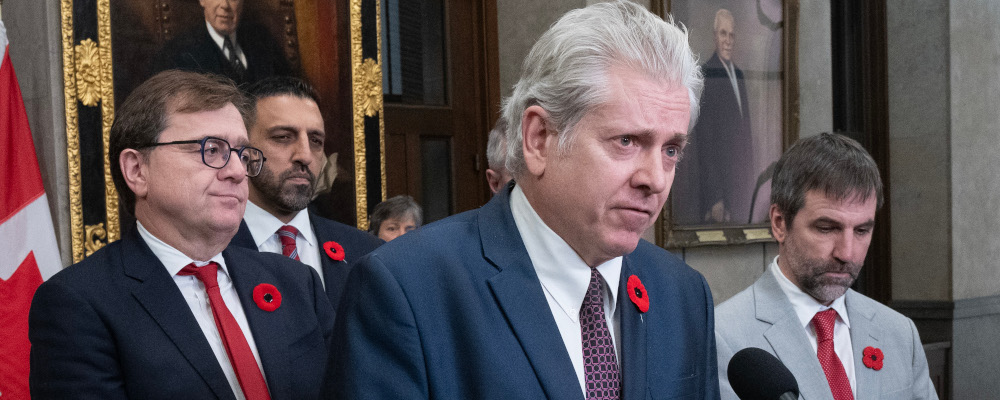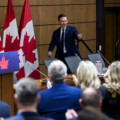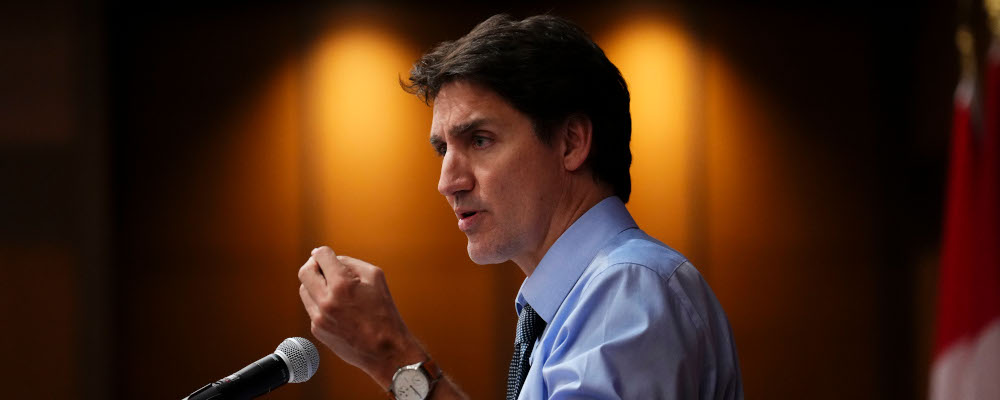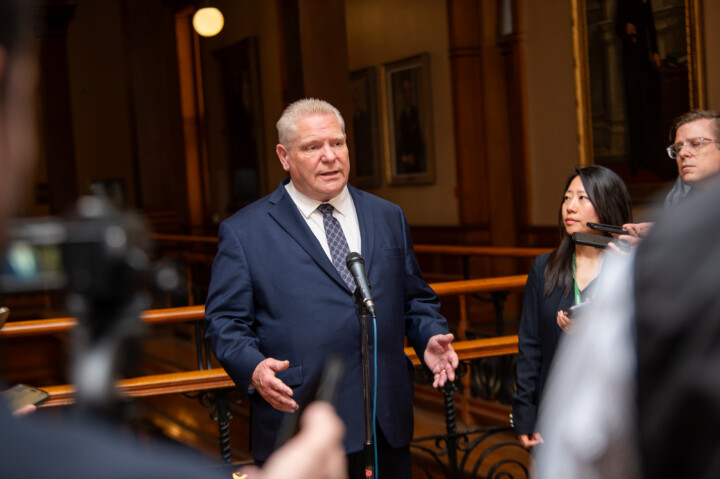If the last few weeks are any indication, Canadian companies should prepare for a dangerous political landscape in the coming months.
Prime Minister Justin Trudeau is on unstable political ground trailing the opposition Conservatives by almost 20 percentage points in one poll. This will put political Ottawa increasingly on an election footing and corporate Canada will get caught in the crosshairs.
The latest example was BCE Inc.’s February 8 announcement that it was cutting headcount by nine percent at Canada’s largest telecom. This includes more than 400 layoffs at its Bell Media division and the sale of 45 radio stations.
To recap, Trudeau didn’t take kindly to it.
The PM declared it a “garbage decision” and even went as far as to suggest BCE was complicit in the erosion of Canada’s democracy.

It was an over-the-top reaction. But it represents an alarming trend in Ottawa. Politicians are eagerly targeting vilifying and scapegoating Canada’s largest firms as if they are pariahs. At a time when the investment climate remains incredibly challenging, it is a dispiriting development in C-suites across the country.
Take Trudeau’s assertions against BCE. If radio channels are so fundamental to our democracy, why is the federal government largely ignoring them in its own ad spending? Last year the feds spent about the same amount on LinkedIn ($2.4 million) as they did for ads on all of Canada’s struggling radio stations ($2.7 million). Should we really be outraged that a private company is choosing not to operate loss-making media assets that the government isn’t advertising on?
To be sure, Trudeau couldn’t have been happy that BCE blamed Liberal policy for the layoffs. This would have put any government on the defensive.
Yet the Canadian government did change the competitive landscape last year to favour third-party resellers of BCE’s internet network.
The move happened midway through BCE’s record-setting investment push that has totalled $18 billion over four years. BCE ramped up capital spending on the premise the favourable regulatory regime—which had been in place only since 2021—would continue.
Perhaps the company’s biggest mistake was to assume the investment environment wouldn’t keep changing. The pricing regime for third-party internet service providers has switched three times since 2019.
Executives at BCE hold a fiduciary duty to spend shareholder money wisely, like every publicly traded company. Whether politicians like it or not, that’s just how things work. This imperative becomes even greater in times when the cost of capital is rising like it is now.
A few days after BCE’s announcement, the company sold $1.45 billion of debt in the U.S. bond market. The interest rate was almost two percentage points above similar debt sold just a couple of years ago.
In its 2023 financials released on February 8, BCE reported interest payments had jumped by about $300 million over the last year. This is about what BCE expects to generate in savings from the cost cuts.
This sort of context appears to be lost in political circles.
While BCE is today’s political target, it won’t be the last. Ottawa’s shifting and thickening regulatory landscape, along with the outright hostility, is being felt far beyond the Montreal-based telco.

Canada’s oil and gas sector—by far the country’s largest export earning industry—is under constant attack The most recent development is a private member’s bill from the NDP’s Charlie Angus that would ban advertisement by the sector like restrictions for tobacco companies. Trudeau’s environment minister Steven Guilbeault put out a statement saying the government welcomed the bill.
Canada’s banks are paying not one but two special taxes—a legacy of the last election when they became targets.
Canada’s grocery chains, which employ more than 400,000 retail workers, are being blamed for surging food prices. Late last year executives were summoned to Ottawa to find ways to fix the problem.
Summoning CEOs to Ottawa is a thing politicians like to do to show gravity.
Suncor CEO Rich Kruger was brought to Ottawa late last year to explain comments he had made to investors about putting less of an emphasis on the oil giant’s longer-term energy transition.
In his testimony, Kruger had this to say: “I think one of the challenges we face here, and have faced here for some time now, is a bit of the unpredictability and uncertainty, which then, quite frankly, scares away capital.”
Now members of parliament want BCE executives, including CEO Mirko Bibic, to testify at committee later this month.
The likely effect will simply be to harden BCE’s resolve.
In its decision, the company said that it wants to put less money into assets that are exposed to the whims of politicians. Or more precisely: “It’s about reducing our dependence on overly regulated businesses,” Bibic said on his earnings call to analysts.
Trudeau’s reaction simply validates that strategy.
Recommended for You

Ontario’s Progressive Conservatives need a wake-up call

Decoding the uncertainty in Canada’s oil patch—and what it means for Carney’s investment ambitions

From Jordan Peterson law to bail reform: 9 policy proposals from the Conservative convention that could spur Canada’s comeback

‘A delicate balance’: Why the Conservative convention is a crossroads for the party




